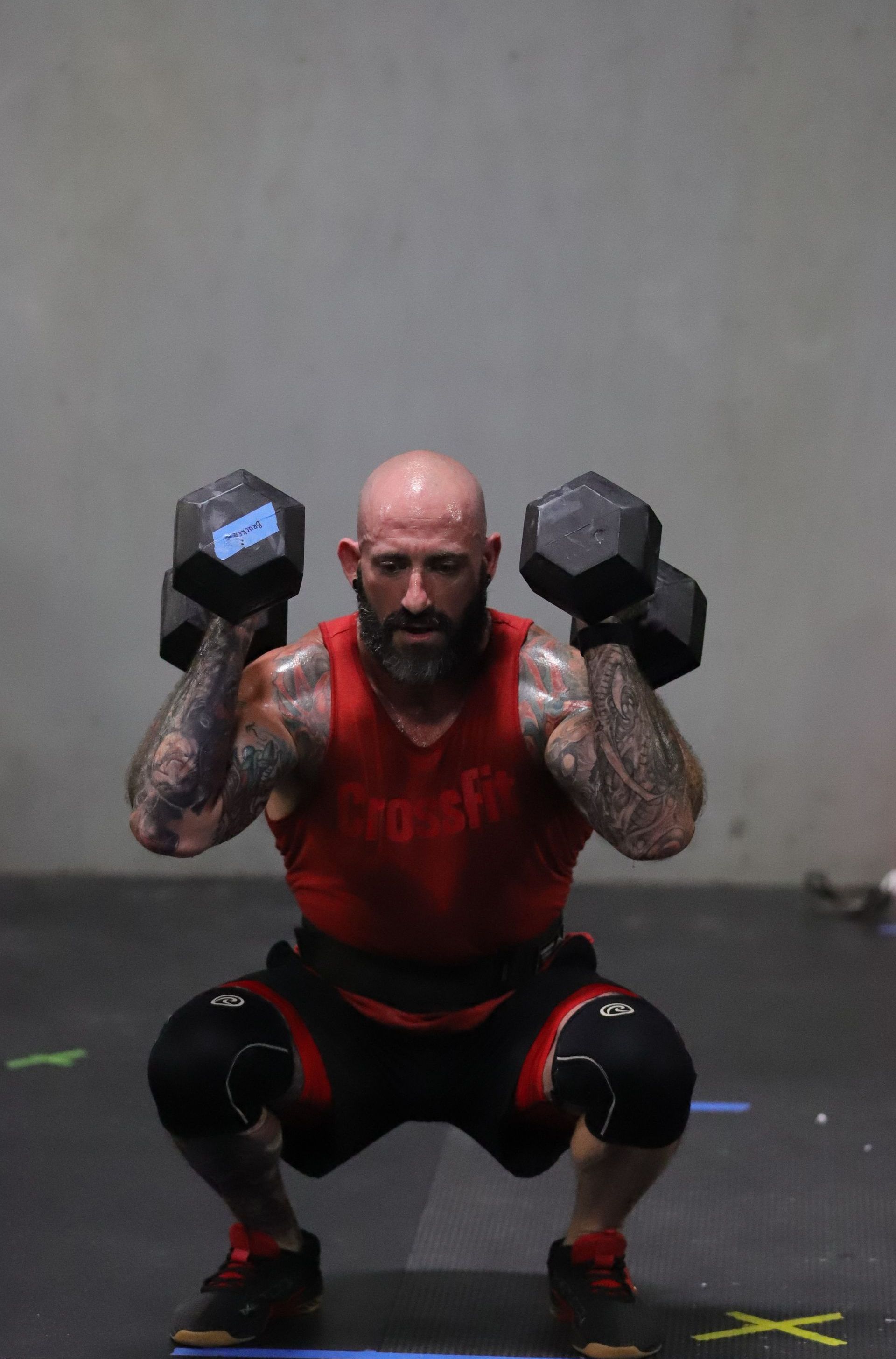The Vital Role of Mental Health in Achieving Fitness Goals

The Vital Role of Mental Health in Achieving Fitness Goals
When it comes to reaching our fitness goals, we often only think about the physical aspect. We talk about the best workout plans, the importance of a balanced diet, and getting enough sleep. But there's another crucial piece of the puzzle that often gets overlooked: mental health.
I've been there. A lot.
Personally, I’ve paralyzed my own progress in fitness, health, and/or work by just taking on too much. I've stagnated relationships. I've found myself overwhelmed and irritable. And sometimes I would remain in a negative mental state for a long time and not even recognize it.
We have to be honest with ourselves.
Life can be incredibly stressful. Many of us are juggling work, family, and personal commitments, often feeling like there aren’t enough hours in the day. Add to that the pressures of social media, a myriad of financial concerns, a never-ending stream of negative local and world events, and it’s no wonder
so many of us are feeling overwhelmed, anxious, or even battling depression. These mental health challenges make it incredibly difficult to prioritize your health.
For those of us who are struggling, it might seem impossible to find the drive to work out regularly. The idea of hitting the gym when you're already exhausted or feeling down can feel like you’re climbing Mount Everest. But here's the thing:
taking care of your mental health is just as important as lifting those weights or hitting your cardio targets. In fact, it might be the key to finally achieving your health and fitness goals.
Why Mental Health Matters
Motivation and Consistency
Let’s be real: staying motivated is hard, especially on those days when it’s blistering cold outside, work just kicked your butt, or when your sofa looks way more inviting than the gym. Your mental state plays an enormous role in how motivated you feel to work out. And it might be the only thing that drags you off the couch and forces you to stick to your routine. When you’re in a good place mentally, you’re more likely to get up and get moving. But if you’re dealing with mental health issues like depression or anxiety, finding that drive can feel like trudging through mud.
Stress Management
Have you noticed how a good workout can make you feel spectacular and energized? Exercise is a fantastic stress-reliever! Physical activity releases
endorphins, the "feel-good" hormones that help combat stress and help to improve your mood. On the other hand, high stress levels can lead to poor or rushed eating habits, sleep disruption, and general inactivity and disconnection.
The Mind-Body Connection
Your mind and body are a team, and they work best when they’re both in top shape. Practices like
mindfulness and meditation can enhance your workout performance by improving your focus and body awareness. This connection can help you push through a challenging workout, and it can help you recover more effectively.
Balancing Mental Health and Fitness
Set Realistic Goals
Avoid setting goals that are so ambitious they’re impossible to reach. Instead, aim for small, achievable milestones that will incrementally put you in a better position to achieve those super ambitious goals. You have to lose five pounds before you can drop fifty. Celebrate each victory, no matter how small. This helps to keep your spirits high and your motivation strong.
Incorporate Mindfulness Practices
Incorporating mindfulness practices like yoga or meditation in your routine can help you stay present and focused. These activities not only improve mental health but also supplement your physical performance.
Seek Support
Whether it’s through therapy, talking to a friend, or joining a support group,
seeking support for mental health issues can make a significant difference. There’s absolutely zero shame in asking for help, and you may find someone who has overcome similar experiences.
Listen to Your Body
Pay attention to how you’re feeling mentally and physically. It’s OK to take a break if you’re feeling overwhelmed or exhausted. Rest and recovery are essential parts of a healthy fitness routine. I promise you won't lose your gains by taking a day off!
Create a Positive Environment
Surround yourself with supportive, like-minded people who encourage your fitness journey. Folks close to you should want you to be successful. A positive and constructive environment can boost your mental health and will surely keep you motivated.
Wrapping Up
Achieving your fitness goals isn’t just about physical strength and endurance; it’s also about mental resilience and well-being. By prioritizing your mental health, you create a solid foundation that supports and enhances your physical fitness efforts. Remember, a healthy mind fuels a healthy body, and together, they empower you to reach your fitness aspirations.
When you understand and embrace the connection between mental health and physical fitness, you can create a more balanced, sustainable, and fulfilling fitness journey. So, take care of your mind as much as your body, and watch how it transforms your path to achieving your fitness goals.
By focusing on both mental and physical health, you’re setting yourself up for success. Let’s make this journey not only about getting fit, but about feeling good, inside and out.
As of the publish date on this article, I’ve been practicing CrossFit for thirteen years. I’ve owned this gym since it opened in 2012. I've helped hundreds of folks get healthier, lose weight, get stronger, and gain back their independence. Let's meet to talk about what's important to you:
Joe's Schedule.
Joe Marcavage
Owner, CrossFit Vertex

Previous Posts
Reach your fitness goals at CrossFit Vertex today!
Book your free intro today to see how we can help you reach your fitness goals.












